第127章
Just behind the wings of the stage-front at each end of the box - was an upright roller, and the long strip of pictures was rolled up on this.The upper ends of the rollers came through the top of the box and had handles attached to them.When these handles were turned the pictures passed across the stage, unrolling from one roller and rolling on to the other, and were illuminated by the light of three candles placed behind.
The idea of constructing this machine had been suggested to Bert by a panorama entertainment he had been to see some time before.
`The Style of the decorations,' he remarked, alluding to the painted stage-front, 'is Moorish.'
He lit the candles at the back of the stage and, having borrowed a tea-tray from Nora, desired the audience to take their seats.When they had all done so, he requested Owen to put out the lamp and the candles on the tree, and then he made another speech, imitating the manner of the lecturer at the panorama entertainment before mentioned.
`Ladies and Gentlemen: with your kind permission I am about to hinterduce to your notice some pitchers of events in different parts of the world.As each pitcher appears on the stage I will give a short explanation of the subject, and afterwards the band will play a suitable collection of appropriated music, consisting of hymns and all the latest and most popular songs of the day, and the audience is kindly requested to join in the chorus.
`Our first scene,' continued Bert as he turned the handles and brought the picture into view, `represents the docks at Southampton; the magnificent steamer which you see lying alongside the shore is the ship which is waiting to take us to foreign parts.As we have already paid our fare, we will now go on board and set sail.'
As an accompaniment to this picture Bert played the tune of `Goodbye, Dolly, I must leave you', and by the time the audience had finished singing the chorus he had rolled on another scene, which depicted a dreadful storm at sea, with a large ship evidently on the point of foundering.The waves were running mountains high and the inky clouds were riven by forked lightning.To increase the terrifying effect, Bert rattled the tea tray and played `The Bay of Biscay', and the children sung the chorus whilst he rolled the next picture into view.
This scene showed the streets of a large city; mounted police with drawn swords were dispersing a crowd: several men had been ridden down and were being trampled under the hoofs of the horses, and a number of others were bleeding profusely from wounds on the head and face.
`After a rather stormy passage we arrives safely at the beautiful city of Berlin, in Germany, just in time to see a procession of unemployed workmen being charged by the military police.This picture is hintitled "Tariff Reform means Work for All".'
As an appropriate musical selection Bert played the tune of a well-known song, and the children sang the words:
`To be there! to be there!
Oh, I knew what it was to be there!
And when they tore me clothes, Blacked me eyes and broke me nose, Then I knew what it was to be there!'
During the singing Bert turned the handles backwards and again brought on the picture of the storm at sea.
`As we don't want to get knocked on the 'ed, we clears out of Berlin as soon as we can - whiles we're safe - and once more embarks on our gallint ship' and after a few more turns of the 'andle we finds ourselves back once more in Merry Hingland, where we see the inside of a blacksmith's shop with a lot of half-starved women making iron chains.They work seventy hours a week for seven shillings.Our next scene is hintitled "The Hook and Eye Carders".'Ere we see the inside of a room in Slumtown, with a mother and three children and the old grandmother sewin' hooks and eyes on cards to be sold in drapers'
shops.It ses underneath the pitcher that 384 hooks and 384 eyes has to be joined together and sewed on cards for one penny.'
While this picture was being rolled away the band played and the children sang with great enthusiasm:
`Rule, Brittania, Brittania rules the waves!
Britons, never, never, never shall be slaves!'
`Our next picture is called "An Englishman's Home".'Ere we see the inside of another room in Slumtown, with the father and mother and four children sitting down to dinner - bread and drippin' and tea.It ses underneath the pitcher that there's Thirteen millions of people in England always on the verge of starvation.These people that you see in the pitcher might be able to get a better dinner than this if it wasn't that most of the money wot the bloke earns 'as to pay the rent.
Again we turns the 'andle and presently we comes to another very beautiful scene - "Early Morning in Trafalgar Square".'Ere we see a lot of Englishmen who have been sleepin' out all night because they ain't got no 'omes to go to.'
As a suitable selection for this picture, Bert played the tune of a music-hall song, the words of which were familiar to all the youngsters, who sang at the top of their voices:
`I live in Trafalgar Square, With four lions to guard me, Pictures and statues all over the place, Lord Nelson staring me straight in the face, Of course it's rather draughty, But still I'm sure you'll agree, If it's good enough for Lord Nelson, It's quite good enough for me.'